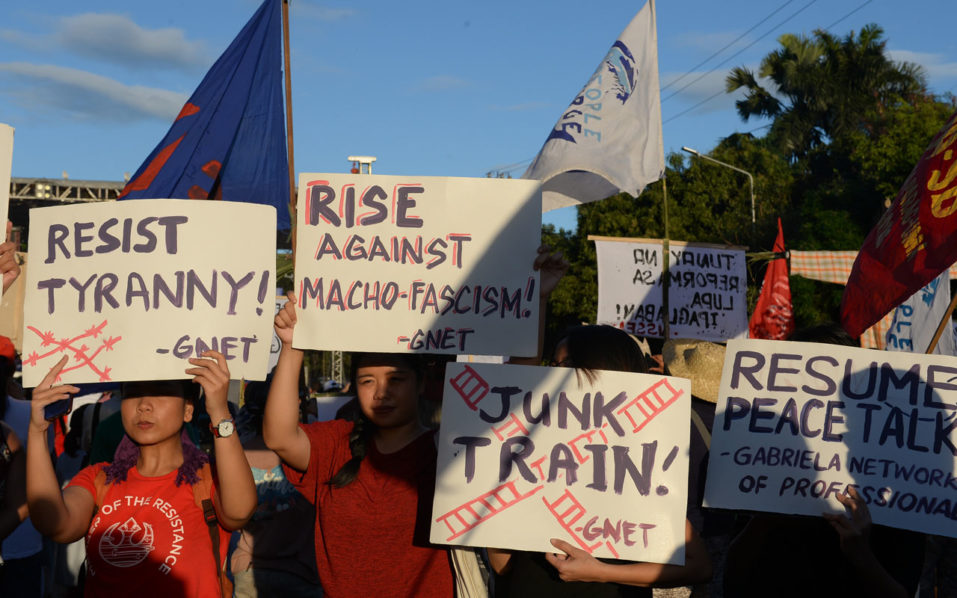
The Philippines’ human rights record was raised at a UN Human Rights Council meeting in Geneva this week, with Iceland Foreign Minister Gudlaugur Thor Thordarson urging Manila on Monday to accept a visit from the UN Special Rapporteur.
Duterte was elected by a landslide in 2016 largely on a pledge to kill tens of thousands of criminals, and has presided over a narcotics crackdown that rights monitors describe as amounting to crimes against humanity.
Foreign Secretary Alan Peter Cayetano told the council on Tuesday Manila was ready to cooperate, but called for fairness.
“Send anyone except one who has already prejudged us, and who, by any measure, cannot be considered independent and objective,” Cayetano added.
“Let us in this regard take to heart our Secretary-General’s warning yesterday not to politicise — may I even say weaponise — human rights,” Cayetano said.
Philippine police said they have killed 4,021 drug suspects who resisted arrest, while human rights groups estimate more than 12,000 deaths in all, including people murdered by shadowy vigilantes.
Cayetano said some non-government civil rights monitors he did not name had unjustly portrayed the Philippines and “politicised and weaponised the issue for their own gain”.
“Human rights becomes a human wrong when the ridiculous assertion is taken seriously that drugs are harmless, that their effects are benign at best and passing at worst, and that taking the most vigorous measures to stop the evil trade constitutes genocide.
“That puts drug dealers and drug pushers on the same moral level as the victims (of) holocausts.”
In Manila, Duterte spokesman Harry Roque said Tuesday the government would specifically refuse a visit by Agnes Callamard, the special UN rapporteur on extrajudicial, summary or summary executions.
Callamard has been seeking permission to travel to Manila to investigate the killings, but has rejected Duterte’s conditions attached to the visit, including debating him publicly on his drug war.
The Hague-based International Criminal Court’s prosecutor earlier this month announced a separate preliminary examination into the killings of drug suspects in the Philippines.
Duterte has at times called for drug addicts as well as traffickers to be killed, and vowed to pardon police if they are found guilty of murder for prosecuting the drug war.
In September 2016 he drew parallels between Hitler’s Holocaust and his crackdown against three million supposed drug addicts, telling reporters: “I’d be happy to slaughter them.”
However Duterte also repeatedly states that he has not encouraged police to break the law, and he is not doing anything illegal by calling for people to be killed.
[ad unit=2]



